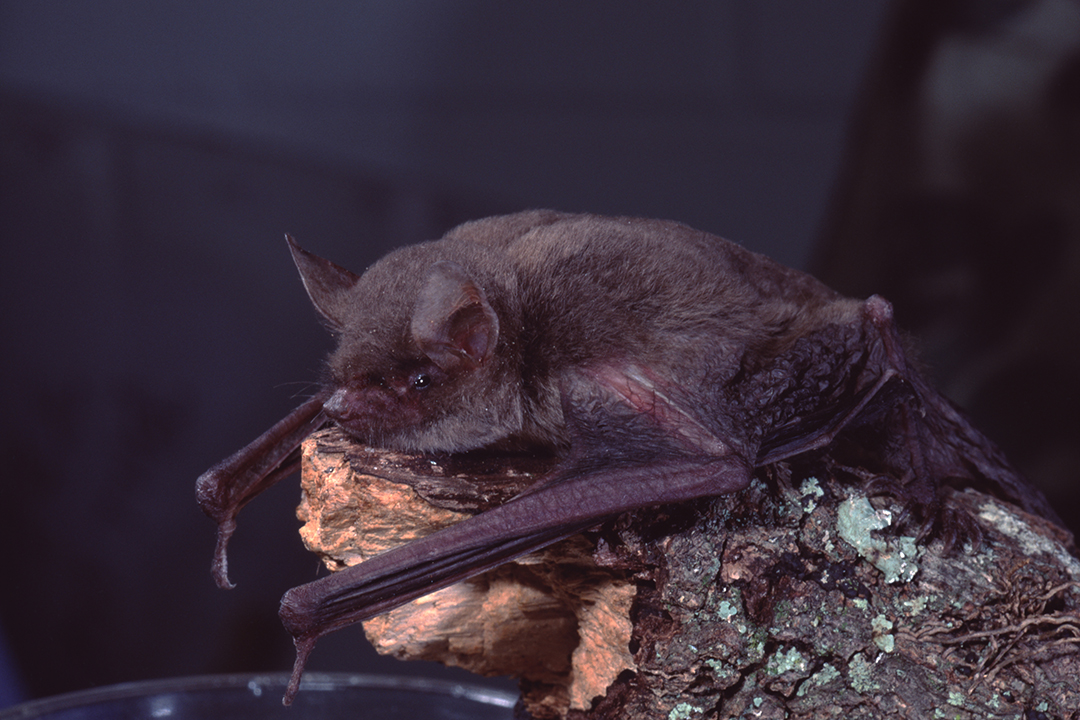
White nose syndrome detected in northern Manitoba
White nose syndrome (WNS) — a fatal fungal infection of bats — has been confirmed in four little brown bats (Myotis lucifugus) found near Cranberry Portage, Man. This is the furthest northern and western occurrence of WNS in Canada to date.
By Katelyn LuffEarlier this spring, a wildlife biologist in Cranberry Portage contacted the bat health program co-ordinator at the Canadian Wildlife Health Cooperative (CWHC) with concerns about early emerging bats that had been seen in the area.
Four bats that had been found dead were collected and transported to Winnipeg, Man., with the help of conservation officers, and then shipped to the CWHC's Western/Northern office in Saskatoon, Sask., with the support of Manitoba Agriculture and Resource Development.
Once the bats arrived in Saskatoon, they went for necropsy. Three individuals were too desiccated for necropsy but were still able to be swabbed for WNS. Through PCR testing, all four bats tested positive for the disease. Lesions consistent with WNS were observed in the necropsied bat.
Pseudogymnoascus destructans, the fungus that causes WNS, was first detected in New York state 15 years ago. Since that time, WNS has spread rapidly across North America and has now been detected in seven provinces and at least 37 states in the U.S.
Since its discovery, it’s estimated that WNS has killed more than 6.7 million bats. The fungus interferes with hibernation, causing bats to wake more frequently and burn critical fat reserves. Affected bats are often seen flying during the day and in freezing temperatures, in a desperate attempt to find food.
Without the collaboration of vigilant community members, the Manitoba government and the CWHC, this case of WNS may have gone unreported. If you come across sick or dead bats, report your observations to your local conservation office or to the CWHC through the organization's online reporting system. Do not directly handle live or dead bats, as they can also carry other diseases including rabies.
For more information about WNS, please visit the CWHC website.
Reposted with permission from the CWHC. Click here to view the original article.
